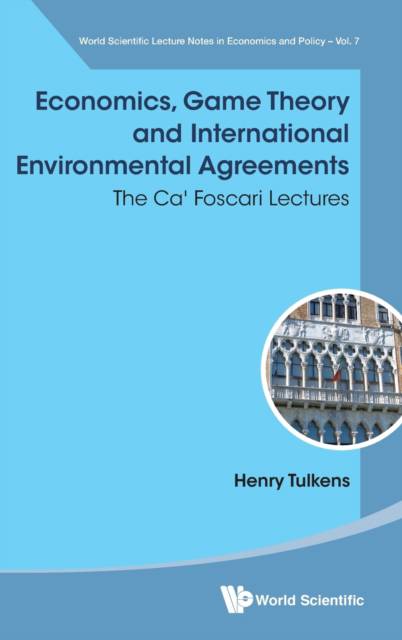
Bedankt voor het vertrouwen het afgelopen jaar! Om jou te bedanken bieden we GRATIS verzending (in België) aan op alles gedurende de hele maand januari.
- Afhalen na 1 uur in een winkel met voorraad
- In januari gratis thuislevering in België
- Ruim aanbod met 7 miljoen producten
Bedankt voor het vertrouwen het afgelopen jaar! Om jou te bedanken bieden we GRATIS verzending (in België) aan op alles gedurende de hele maand januari.
- Afhalen na 1 uur in een winkel met voorraad
- In januari gratis thuislevering in België
- Ruim aanbod met 7 miljoen producten
Zoeken
Economics, Game Theory and International Environmental Agreements: The Ca' Foscari Lectures
Henry Tulkens
€ 180,45
+ 360 punten
Uitvoering
Omschrijving
The science and management of environmental problems is a vast area, comprising both the natural and social sciences, and the multidisciplinary links often make these issues challenging to comprehend. Economics, Game Theory and International Environmental Agreements: The Ca' Foscari Lectures aims to introduce students to the multidimensional character of international environmental problems in general, and climate change in particular.Ecology, economics, game theory and diplomacy are called upon and brought together in the common framework of a basic mathematical model. Within that framework, and using tools from these four disciplines, the book develops a theory that aims to explain and promote cooperation in international environmental affairs.Other books on the topic tend to be research-oriented volumes of various papers. Instead, this is a book that offers a reasonably-sized synthesis of the multidimensional societal problems of transfrontier pollution, particularly of climate change. It uses mathematical modeling of economic and game theory concepts to examine these environmental issues and demonstrate many results in an accessible fashion. Readers interested in understanding the links between ecology and economics, as well as the connection between economics and institutional decision-making, will find in this text not only answers to many of their queries but also questions for further thinking.
Specificaties
Betrokkenen
- Auteur(s):
- Uitgeverij:
Inhoud
- Aantal bladzijden:
- 460
- Taal:
- Engels
- Reeks:
- Reeksnummer:
- nr. 7
Eigenschappen
- Productcode (EAN):
- 9789813141223
- Verschijningsdatum:
- 24/07/2019
- Uitvoering:
- Hardcover
- Formaat:
- Genaaid
- Afmetingen:
- 152 mm x 229 mm
- Gewicht:
- 780 g

Alleen bij Standaard Boekhandel
+ 360 punten op je klantenkaart van Standaard Boekhandel
Beoordelingen
We publiceren alleen reviews die voldoen aan de voorwaarden voor reviews. Bekijk onze voorwaarden voor reviews.









